Top 10 Different Types Of Cultivation In Agriculture
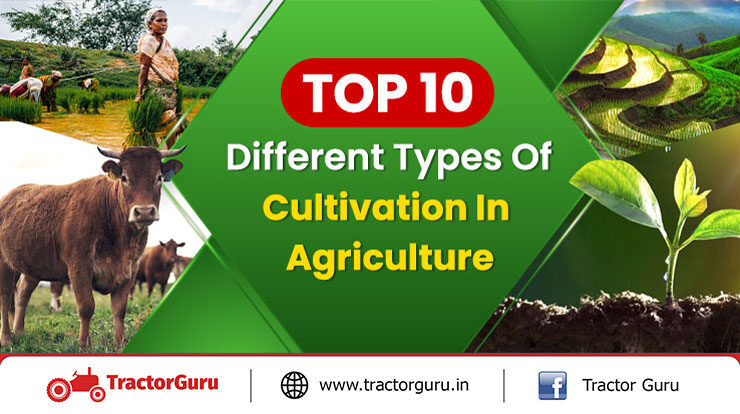
The agriculture sector is a backbone and an essential part of the Indian economy because it contributes 17% total to the GDP. It is also a big source of employing 60% of the Indian population. Agriculture and types of agricultural crops are important as well as the basic needs of a human. So that’s why around 70% of Indian rural families are engaged and depend on farming. Top 10 Different Types of cultivation is way to increase the productivity of farmlands.
It is one of the most extensive activities globally and a good income source for small and marginal farmers. As we know, its criteria is very broad but not the same. It has many ways and categories to produce different kinds of crops. Farming becomes easier now by performing types of cultivation in agriculture.
We can divide agriculture into two ways, such as traditional and modern, both the ways are different itself and perform different types of farming accordingly. Agriculture aims to provide the living standard by generating income and producing crops, foods, other raw items to the factories/industries, fodder and forage to the livestock and many more things. Therefore, major types of agriculture activities perform many different types of farming and grow all types of agriculture crops.
Why Different Types of Cultivation in Agriculture are Popular?
India has various climatic changes, and for better crop production, the different types of agriculture in India depends on the geographic conditions, monsoon cycle, the demand of production, technology level and labour. Types of cultivation in agriculture define the types of farming systems that are done according to the region and crops requirement. It is popular because every farming and crop has its own nature to grow and mainly thrives in a suitable environment. Therefore the different types of cultivation in agriculture are very popular globally. However, there are two types of agriculture one is Subsistence farming and the second one is commercial farming and the other all types of farming come under these 2 categories. But here, we are describing different kinds of agriculture separately to make it easily understandable.
Different Types Of Agriculture In India
Indian farming differs in various ways, and here we are going to explain the different types of farming. Check types of cultivation in agriculture in the further blog.
1. Subsistence Farming
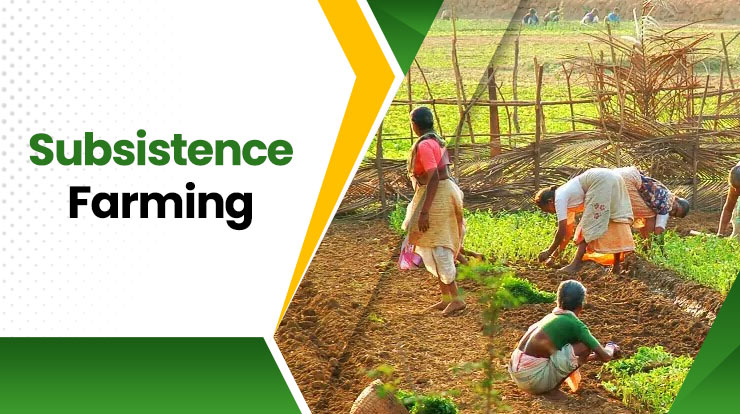
Subsistence farming is one of the popular types of cultivation in agriculture that’s the main purpose for personal consumption. Farmers grow crops and raise livestock to survive and run their livelihood. They use the basic equipment and small pieces of land for cultivation. Mostly subsistence farmers are likely to be poor and quite unable to afford better seeds and equipment for their farms.
This farming is low productive farming that does not use electricity, likewise a traditional farming. Because this farming is mainly executed for own use and not for sale or profit.
There are 2 types of subsistence farming:-
Intensive Farming – The Intensive farming includes farming which is done on small land with handy tools and excess labour. This technique provides less output to the farmers.
Primitive Farming – The Primitive farming is done on a self basis, which means they grow foods for their personal use or for their families. But some small farmers either prefer a barter system in exchange for their food.
Here are some importance of subsistence farming that will show you how important subsistence farming is.
- It helps to reduce rural vulnerability
- Improves rural livelihood
- Decreases the food inflation
2. Nomadic Herding
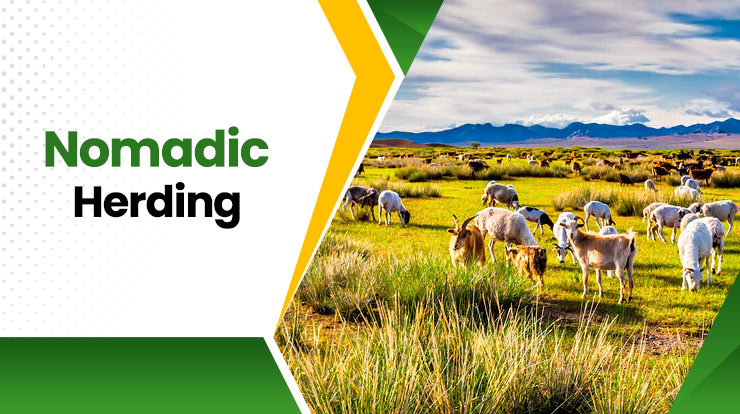
This farming is completely related to wandering, in which they seek fresh and green forage for their livestock. They include cattle, cows, goats, sheep, and many more. They completely depend on the natural pasture to graze their animals. Nomadic Herding is very common in India and can be easily seen around us. We can commonly see them roaming with their animals from one place to another place.
Here are some importance of Nomadic Herding such as, they require low cost to raise livestock, low marketing cost, limitless breeding and many more.
3. Livestock Farming
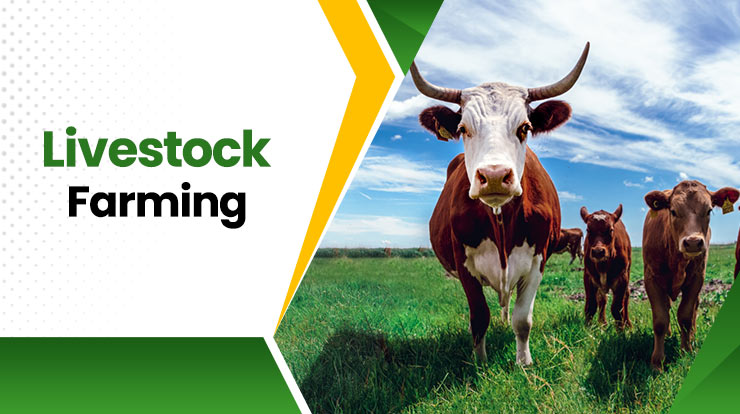
Livestock farming is one of the popular, lucrative and best type of farming. No wonder it is a highly money-making agriculture business for both large scale and small scale. A farmer can start any livestock farming according to their suitable temperature, climate and high-profit return. Livestock farming can be started on a marginal basis at low investment and can earn a good profit. In livestock farming, you can start various types of farming of livestock such as different types of dairy farming, types of poultry farming, types of fish farming, crab farming, cattle farming and many more.
Here are some benefits of livestock farming:- A livestock farmer can get many food items, wool, leather, and more by raising livestock. In addition, farmers can trade livestock products and can earn a good profit.
4. Shifting Cultivation

Shifting agriculture is a moving development that is far-reaching practice. It involves the elimination of forests. The cleared ground is developed for three to five years, or until local greenery and weeds rule it, whichever starts things out. Farmers leave the field for a limited period and clear one more land or region to start other agribusinesses when this occurs. It’s a kind of resource cultivation that is done manually.
5. Terrace Farming
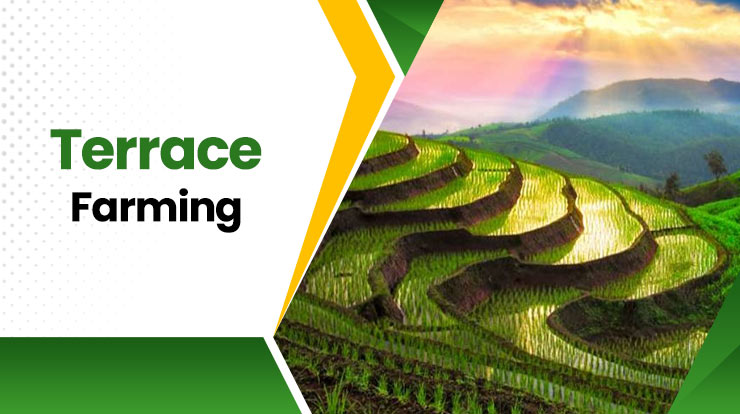
Terrace farming is very common in hilly regions. There the terrace means steps that are constructed on hills or mountains for crop cultivation. Terrace farming crops are directly connected to the rain that helps to remove the unnecessary soil nutrients and make the crops healthy. Rice is the most common terrace farming because it requires paddy lands and a flat surface that enables it to keep water stored. Farming on terrace is very effective in the growth of soil and water.
6. Commercial Farming
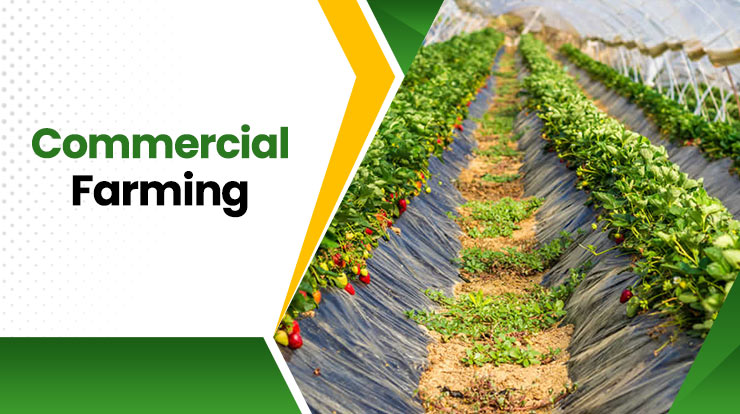
Commercial farming is farming where crops and raises livestock to sell crops or food items for making money. It has high demand in the farming sector because Commercial plantations have to export to other countries and also use to make raw materials in the industries. This farming is one of the types of agriculture that are mainly rearing to earn money. It is a pillar of the agriculture economy globally and has a big contribution.
7. Arable Farming
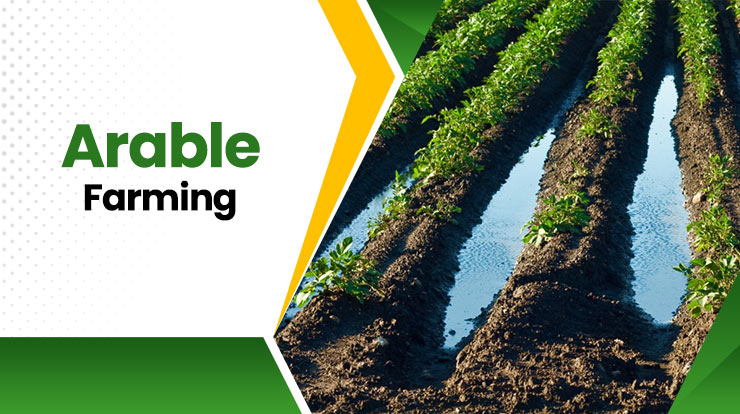
Arable farming is a kind of farming where the cultivation of arable crops is done without the help of animals. In this farming, farmers used to grow only crops, including vegetables, cereals, legumes. Arable farming requires fertile soil, balanced moisture and a hot climate for better growth of crops with suitable machinery and manpower. Farmers can execute this farming on both large and small scale levels.
8. Mixed Farming
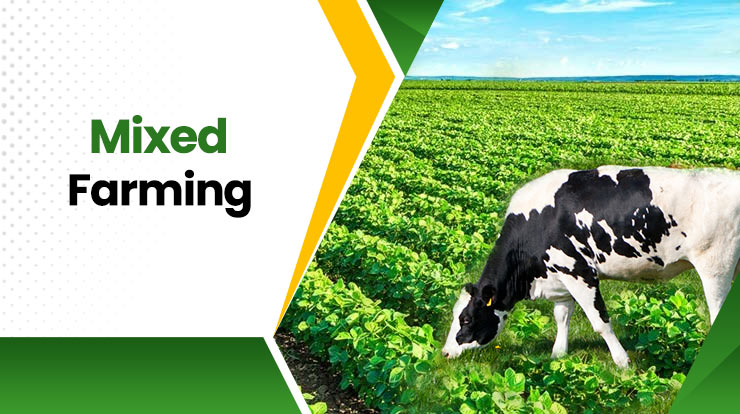
Mixed farming is one of the popular types of cultivation in agriculture that includes growing crops and raising livestock simultaneously. It means the process of mixed farming can grow two-three crops together and also raise livestock with them. The effect of crop rotation increases the dependability of external resources in mixed agriculture. On the same land, they can grow many varieties of crops and also, they can raise poultry aside.
9. Horticulture
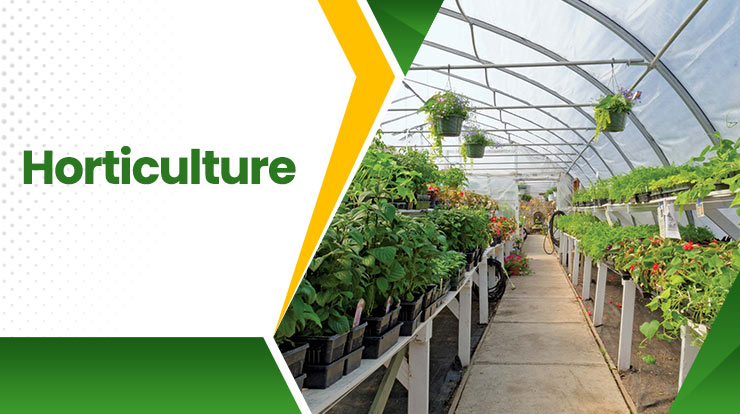
Horticulture is a type of farming where fruits, vegetables and medicinal plants are grown in a kind of garden. The farming of horticulture in India aims to increase economic value by producing such crops and exporting them to other countries. Due to its high healthy values, it is in demand. It is the way of making a profit by producing crops and supplies in the local market as well. Importantly it provides wildlife habitat, reduces pollution, helps in erosion and many more benefits. Here is some example of horticulture such as ornamentals farming, flowers, fruits and so on.
10. Dry Agriculture
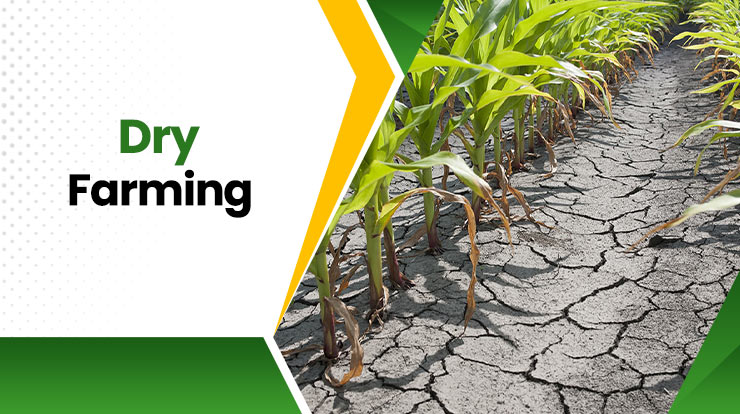
Dry farming is one of the efficient cultivation methods in which crops grow without irrigation in limited moisture areas. It is also known as dryland farming, which primarily serves to conserve soil moisture during long dry periods through tillage, surface protection, and drought-resistant varieties.
We hope the types of cultivation in agriculture list will be helpful for you which we mentioned above. For more information regarding types of organic farming and types of sustainable agriculture, keep in touch with TractorGuru.
Related Post:



